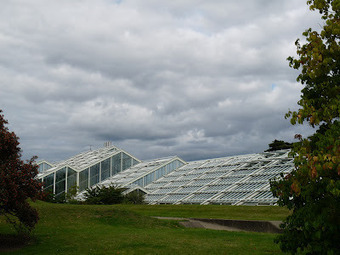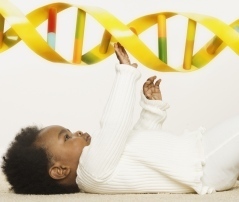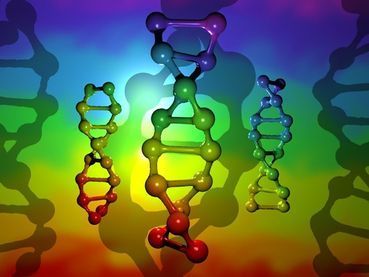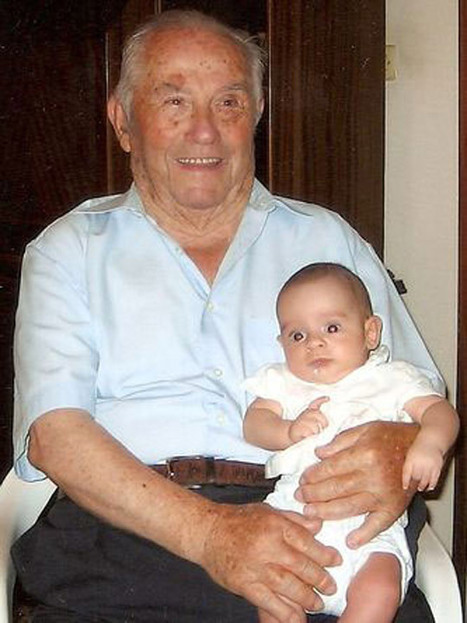Genomes and language provide clues on the origin of Homer's classic
Get Started for FREE
Sign up with Facebook Sign up with X
I don't have a Facebook or a X account


 Your new post is loading... Your new post is loading...
 Your new post is loading... Your new post is loading...
This is a newly revised 3 minute HD dramatic video choreographed to powerful music, which introduces the viewer to the wonder and miracle of cells.
Use of population-genetic data to predict economic success sparks war of words.
Researchers from Harvard have now encoded an entire book in molecules of DNA- the building blocks of life.
Scientists decipher the sequence and location of the tomato's 35,000 genes...
Think your DNA is 100 percent Homo sapiens? Think again. A recent study in the journal Nature reports that at least 40 million years ago, our primate ancestors "invited" a gene from an infecting virus into their genomes. Because this phenomenon adds novelty to a species' DNA makeup, it may represent a newly discovered mode of evolutionary change.
A new study of twins sheds light on the complex links between biology and happiness. More on HAPPINESS: http://www.scoop.it/t/science-news?tag=happiness Via Sandeep Gautam
This fascinating nugget from Crews et a. (open access) adds to accumulating evidence on the importance of experience induced modification of our genomes that can be passed between generations. (The experiments are on mice, because obviously you don't do this kind of study directly on humans.)
Children and even grandchildren of older fathers may live longer than children of younger men.
Male homosexuality is inborn and may be triggered by a gene carried by mothers, new findings suggest.
A recent paper (Andersen et al , 2012) ties all these facts and shows that prenatal exposure to pesticides could affect risk of cardiovascular disease development later in life. Results from a Danish study, which is a part of an on-going prospective study of the effects of pesticide exposure in early pregnancy on the growth and development in the children, offers important insight.
Suspended in the blood of a pregnant woman — along with some added information from a dad-to-be’s saliva — lurks enough fetal DNA to map out an unborn baby’s entire genetic blueprint. Via Ruth Grayberg, Natalie Stewart
Dark matter. It’s mysterious. And the term has a nice ring to it. No surprise then, that the phrase is often co-opted in fields other than physics. Biology is no exception. More about JUNK DNA: http://www.scoop.it/t/science-news?q=junk+DNA |
Not the only gene that separates us from other apes, but an interesting one.
Researchers have found that a single gene that can help explain what time of day you are likely to die.
From
phys
One of the more difficult aspects of evolution for some people to swallow is the notion that random copying errors in DNA can add up to anything useful. In two recently published projects, however, scientists show how typos can indeed lead to improvements. In numerous species of insects, they document the DNA errors that led to changes that are not only beneficial but also brilliant.
Black cottonwood trees (Populus trichocarpa) can clone themselves to produce offspring that are connected to their parents by the same root system. Now, after the first genome-wide analysis of a tree, it turns out that the connected clones have many genetic differences, even between tissues from the top and bottom of a single tree. The variation within a tree is as great as the variation across unrelated trees. Such somatic mutations — those that occur in cells other than sperm or eggs — are familiar to horticulturalists, who have long bred new plant varieties by grafting mutant branches onto ‘normal’ stocks. But until now, no one has catalogued the total number of somatic mutations in an individual plant.
In one tree, the top buds of the parent and offspring were genetically closer to each other than to their respective roots or lower branches. In another tree, the top bud was closer to the reference cottonwood genome than to any of the other tissues from the same individual.The tissue-specific mutations affected mainly genes involved in cell death, immune responses, metabolism, DNA binding and cell communication. Olds think that this may be because many of the mutations are harmful, and the tree reacts by destroying the mutated tissues or altering its metabolic pathways and the way it controls its genes, which leads to further mutations.
The findings have parallels to cancer studies, which have recently shown that separate parts of the same tumor can evolve independently and build up distinct genetic mutations, meaning that single biopsies give only a narrow view of the tumor’s diversity. Via Dr. Stefan Gruenwald
Scientists can now analyze a person's genes to pinpoint what country his or her ancestors hailed from. A team of U.S. researchers recently performed a massive analysis of European genetics using high-resolution gene-screening techniques that arose from the Human Genome Project. To the researchers' surprise, they found that they could distinguish Italians from French, Danish from Norwegians, and so on—just by genes alone. The techniques will prove useful in the study of genetic diseases, ancestry tracing, and crime scene investigation.
In a paper published in the Proceedings of the National Academy of Sciences, researchers are circling in on another hypothesis. The suggestion that inactivation of two specific genes related to the immune system may have conferred selected ancestors of modern humans with improved protection from certain infectious diseases, and also lead to our divergence from our common ancestors.
NASA has its sights on launching rockets into space with lasers. "What if..." they're wondering, "shuttles could be sent up using laser beams to heat their fuel from the ground?" Biophysicists in Japan have had a similar idea. They've successfully used lasers to launch genes inside living creatures, with a little help from nanotechnology. If this works in humans, future battles with cancer may be fought by remote control
According to researchers at Northwestern University, men who become fathers at an older age pass off longevity chromosomes to their children that scientists believe will prolong the child's life.
A new study says that where we live- our geographical location- is important in determining how much our development will be affected by genetic and environmental factors.
Recent research suggests that more subtle chemical changes to our DNA occur as we age. Now, a comparison of the DNA of a newborn baby with that of a centenarian shows that the scope of these changes can be dramatic, and they may help explain why our risk of cancer and other diseases increases as we get older. More on AGING: http://www.scoop.it/t/science-news?tag=aging
Jurassic Park. There, with that obvious reference out of the way, we can get started. Can we actually revive organisms (focusing on animals here) that have gone extinct? How? And how far away is it...
We've been conditioned to believe that some people were born violent -- but the science shows that's just not true... |





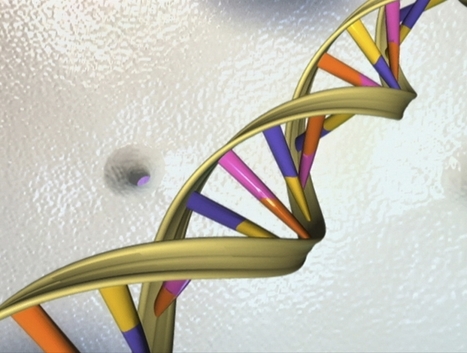
![[VIDEO] Tomato: Decoded | Science News | Scoop.it](https://img.scoop.it/4bylo4vRTvyDhWicZEJdGDl72eJkfbmt4t8yenImKBVvK0kTmF0xjctABnaLJIm9)




